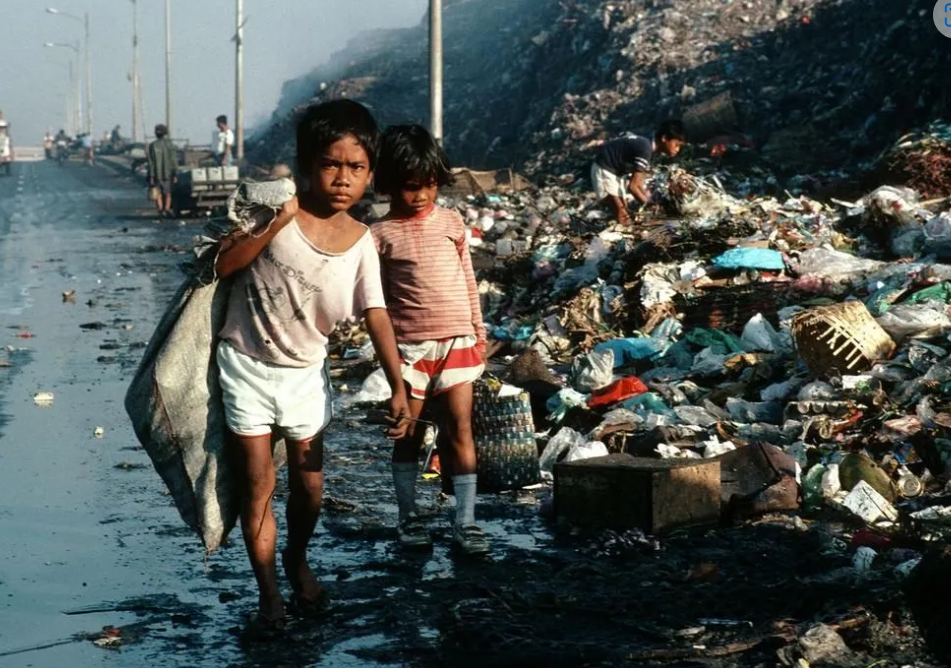If an Anti-poverty Czar claims that poverty is just speculation, hasn’t he essentially forfeited his mandate and lost his ‘czardom’?
Larry Gadon, the Philippine anti-poverty czar, recently made a controversial statement suggesting that poverty in the Philippines is merely speculative or imaginary. His comment has sparked significant debate and criticism, given the widespread and well-documented challenges of poverty in the country.

By labeling poverty as imaginary, Gadon downplays the real struggles faced by millions of Filipinos. This perspective can be seen as insensitive and disconnected from the ground realities, where many Filipinos experience inadequate access to basic needs such as food, healthcare, education, and housing. Such a statement from a high-ranking official can have far-reaching implications on how poverty is perceived and addressed in the country.
Policy Formulation and credibility
Gadon’s stance will, no doubt, influence the formulation and implementation of anti-poverty policies. If the head of the anti-poverty initiatives does not acknowledge the severity of the issue, it could lead to insufficient policy measures, lack of urgency in addressing the problem, and potentially misguided priorities. Effective policies require a clear understanding of the issues at hand, and dismissing poverty as speculative undermines this process.
Statements like Gadon’s can erode public trust in the President Bongbong Marcos’s commitment to addressing poverty. In fact, the public is starting to feel that their struggles are being ignored or trivialized especially with the increasing cost of living and high inflation. If not curtailed, this will lead to disillusionment with the government and its programs — a reason why Vice President Sara Duterte and her family continue to gain support despite the inefficiencies, corruption and mismanagement of the previous administration. Public trust is crucial for the success of any government initiative, and maintaining this trust requires empathy and acknowledgment of the population’s real issues.
Gadon’s remarks can, and will, also affect the Philippines’ image on the international stage. International organizations and foreign aid donors might be concerned about the effectiveness of their contributions if the official stance minimizes the existence of poverty. This could potentially impact foreign aid and international support, which are vital for many poverty alleviation programs.
Realities of Multi-Faceted Poverty in the Philippines
To understand the implications of Gadon’s statement, it is essential to look at the multifaceted nature of poverty in the Philippines.
According to the Philippine Statistics Authority (PSA), 22.4% of the Filipinos live below the poverty line in the First Semester of 2023. Self-rated poverty, on the other hand, is 46% in 2023 according to the Social Weather Stations. The disparity between the rich and the poor is stark, with wealth concentrated in a small segment of the population. This economic inequality is a significant barrier to poverty alleviation.
Poverty in the Philippines, however, is not just about income. It encompasses a lack of access to quality education, healthcare, and social services. Many families live in informal settlements with poor sanitation and limited access to clean water. These social issues compound the economic difficulties faced by the poor.
Unemployment and underemployment rates remain high. Many Filipinos are engaged in low-paying, informal sector jobs without job security or benefits. This precarious employment situation contributes to the persistence of poverty and the inability of families to improve their living standards
Poverty is more pronounced in rural areas and among indigenous communities. Lack of infrastructure and services in these regions exacerbates their socio-economic conditions. Development efforts often bypass these areas, leaving them in a cycle of poverty.
Children, women, and the elderly are particularly vulnerable. Malnutrition, lack of educational opportunities, and inadequate healthcare services are common issues affecting these groups. Addressing poverty requires targeted interventions to support these vulnerable populations.
Conclusion
Larry Gadon’s statement that poverty in the Philippines is merely speculative is not only controversial but also potentially harmful. It risks undermining efforts to combat poverty and improve the lives of millions of Filipinos. Recognizing the multifaceted nature of poverty is crucial for developing effective strategies and policies. Acknowledgment of the real challenges faced by the population is the first step towards meaningful and sustainable solutions.
To effectively address poverty, it is essential to move beyond dismissive statements and focus on comprehensive, empathetic approaches that address the root causes and multifaceted nature of poverty in the Philippines. Only then can we hope to create a more equitable and prosperous society for all Filipinos. But, what can we expect from Gadon? He was disbarred by the Supreme Court twice for falsifying evidence and lying to his teeth just to prove his wild imagination.
